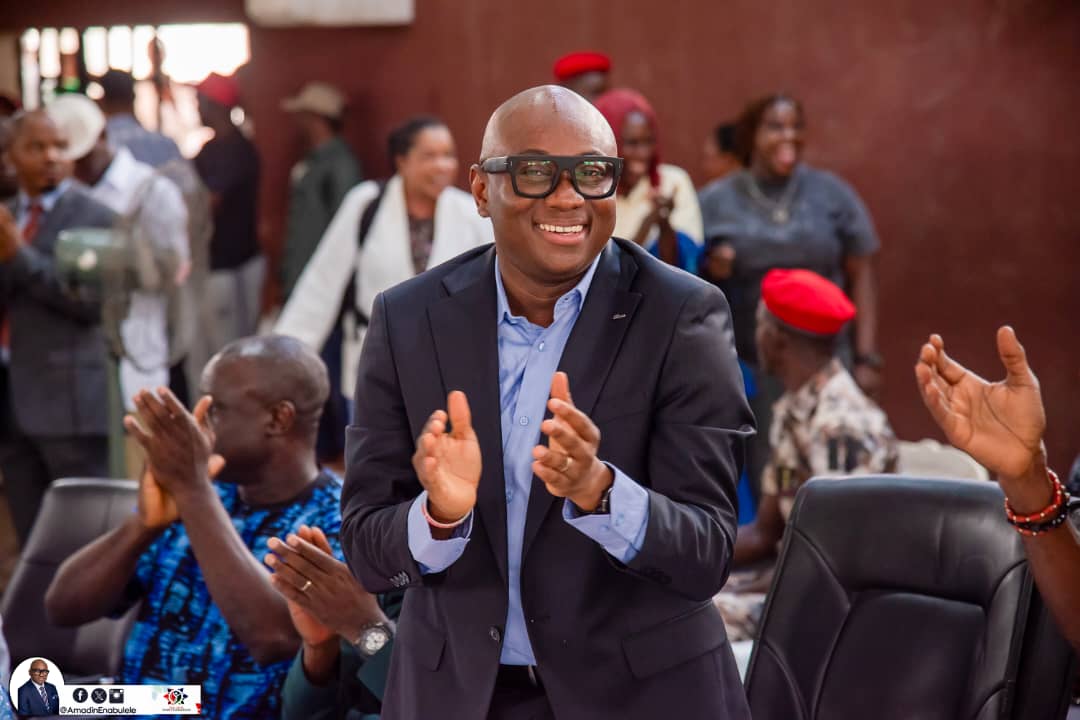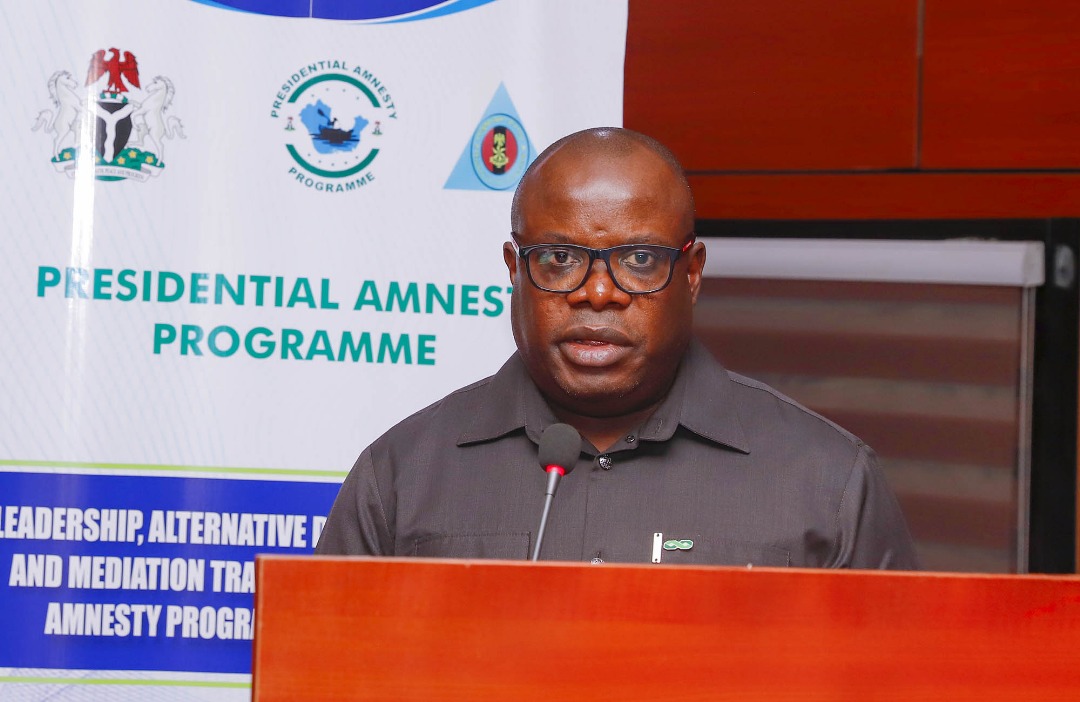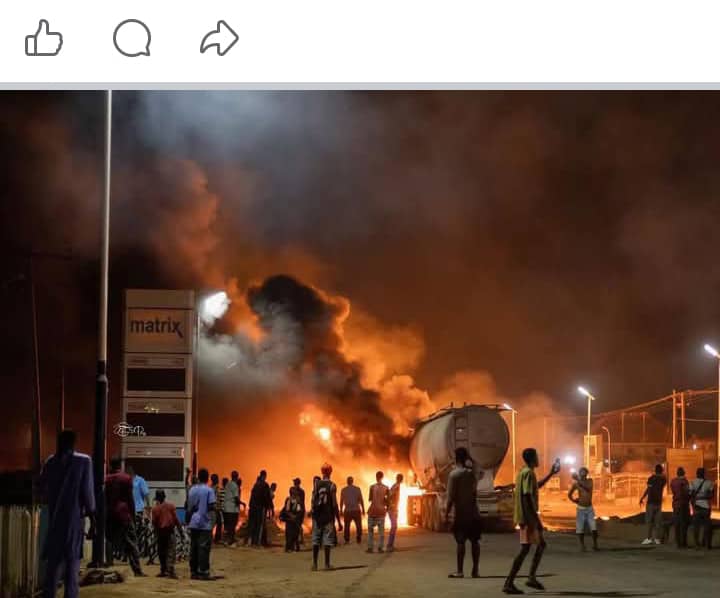News
FG Sets Up Committee To Oversee Cancer Health Fund

The Federal Government has set up a committee to implement the Cancer Health Fund.
The Director-General of the National Institute for Cancer Research and Treatment, Dr Usman Aliyu, disclosed this at an interactive session organised by NICRAT, in collaboration with the International Society of Media on Public Health on Saturday in Abuja.
The CHF is an initiative of the Federal Ministry of Health aimed at providing cancer treatment to indigent Nigerians and strengthening national cancer care.
The initiative commenced in 2021 with six pilot hospitals – the Ahmadu Bello University Teaching Hospital, Zaria, Kaduna state; the National Hospital, Abuja; the University of Benin Teaching Hospital, Benin, Edo state; the Federal Teaching Hospital, Gombe; the University of Nigeria Teaching Hospital, Enugu; and the University College Hospital, Ibadan, Oyo state.
The government had in the 2024 appropriation act N200m for the treatment of indigent cancer patients as part of the CHF.
READ ALSO: UTME: JAMB, Police Warn Candidates Against Fake Websites
According to data from the Global Cancer Observatory, there were 127,763 new cancer cases and 79,542 deaths in 2022.
For both sexes, the data showed that breast cancer led the chart with an estimated 32,278 cases (25.3 per cent); followed by prostate cancer with 18,019 cases (14.1 per cent); cervical cancer with 13,676 (10.7 per cent); colorectum cancer with 8,114 (6.4 per cent); Non-Hodgkins Lymphoma cancer 5,194 (4.1 per cent); and others 50,482 (39.5 per cent).
Aliyu noted that the CHF committee has analysed the concept, the framework, the operational plan, and the challenges.
He said the institute has finalised some of the issues and come up with a better model.
He said, “Most of the issues bother on the area of enrolment, visibility, transparency, and monitoring and evaluation. In the area of accessibility, the institute is working towards making it very accessible by employing the patient-navigation and referral system so that the patient can get on board easily and get on the platform.
READ ALSO: Diri Sends Commissioner-nominees List To Bayelsa Assembly
“For visibility, there is a challenge because of the limitation of funds but we are working towards that, there are lots of commitments and a network of legislators advocating alongside non-governmental organisations and government agencies for improvement in this funding.
“So when that happens, there will be the inclusion of more centres and the operational funding will be different from what has been in the system before in terms of enrolment, evaluation, and selection of patients because the fund is targeted at funding indigent patients.”
He added that efforts are ongoing on increasing the fund in the coming years, and for another amount to be set aside for childhood cancers in the country.
The DG also stated that efforts are underway to establish a centralised standard national cancer registry and data plan in Nigeria.
READ ALSO: Presidency Unveils Platform For Citizens’ Feedback
According to him, the registry had not been in existence due to some factors, including lack of funding.
He said the institute is partnering with the National Primary Health Care Development Agency to train frontline health workers at primary healthcare centres on basic cancer screening techniques to promote early detection and early treatment.
“An estimated number of cases is just a tip of what is happening. There are a lot of people who are affected and dying but are not captured in the number. So, the cancer figure is scary. The projection is that the figure will double if nothing is done.
“We have to commend President Bola Tinubu for bringing NICRAT to prepare the country for the war ahead. NICRAT is empowered to guide scientific improvement in cancer prevention, treatment, and care. It is also to coordinate and liaise with the wide range of groups and health care providers with interest in care,” he added.
READ ALSO: Zimbabwe Introduces HIV Prevention Injection
On her part, the Chief Operating Officer at Stephen James Healthcare Limited, Ayodele Obaro, said there was a need for oncology nurses in the treatment of cancer.
She added that oncology nurses serve as patients’ first line of communication and help to coordinate the many aspects of care throughout cancer treatment.
“Nurses working in a cancer hospital are typically expected to possess clinical expertise, compassion, and specialised knowledge relevant to cancer care.
“Overall, nurses working in a cancer hospital are integral members of the healthcare team, providing holistic care and support to patients and their families throughout the cancer journey,” she emphasised.
News
Grassroots To Global Podium: Edo Sports Commission Marks Enabulele’s First Year In Office

The Indoor Sports Hall in Benin City came alive on Wednesday as the Edo State Sports Commission rolled out the drums to celebrate the first anniversary in office of its Executive Chairman, Hon. Amadin Desmond Enabulele. Management, staff, coaches and athletes gathered in an atmosphere charged with pride, reflection and optimism.
The colourful ceremony drew executives and members of various sports associations, officials of the Sports Writers Association of Nigeria (SWAN), coaches, athletes and other key stakeholders in Edo sports.
In her welcome address, the Acting Permanent Secretary of the Commission, Mrs. A. P. Amenze, praised Hon. Enabulele for what she described as focused and purposeful leadership. She said the past year had seen renewed confidence, discipline and energy return to the state’s sports ecosystem.
Adding excitement to the event were exhibition bouts and demonstrations by the Kung Fu, Karate, Taekwondo and Judo associations, staged in honour of the Executive Chairman.
READ ALSO:2025 NYG: Enabulele Charges Edo Coaches On Performance
Speaking for SWAN Edo State, Chairman Comrade Kehinde Osagiede commended Hon. Enabulele’s open-door leadership style and consistent support for sports development. He noted that the Commission had effectively driven Governor Monday Okpebholo’s “Catch Them Young” policy through practical grassroots programmes that identify and groom young talents across the state.
In recognition of his contributions to sports development and media relations, Comrade Osagiede conferred the Patronship of SWAN Edo State on Hon. Enabulele and presented him with a special anniversary card.
Goodwill messages followed from Executive Directors of the Commission, including Hon. Frank Ilaboya (Edo North), Coach Baldwin Bazuaye, MON (Edo South), Barr. Anthony Ikuenobe (Edo Central), and Mrs. Sabrina Chikere, Executive Director, Sports Development and Operations. Representatives of coaches, athletes and sports associations also took turns to acknowledge the progress recorded under the current leadership.
In his stewardship address, Hon. Enabulele expressed gratitude to Governor Monday Okpebholo and Deputy Governor Rt. Hon. Dennis Idahosa for the trust placed in him, noting that their backing and shared vision had driven the Commission’s achievements.
READ ALSO:Enabulele Lauds Okpehbolo For Creating Enabling Environment For Football To Thrive
He highlighted Team Edo’s third-place finish at the 9th National Youth Games in Asaba, where the state recorded its best-ever outing with 79 medals—33 gold, 18 silver and 28 bronze—reinforcing Edo’s reputation as a national sports powerhouse.
The Chairman also pointed to the impact of inclusive and grassroots sports programmes, citing Favour Ojeabu, a visually impaired para-cyclist who won three gold medals to emerge Africa’s champion at the African Track Para-Cycling Championship in Egypt.
Other milestones listed included outstanding performances by Edo para powerlifters on the international stage, historic achievements in cricket, weightlifting, cycling, judo and deaf athletics, as well as structural reforms such as the repositioning of Bendel Insurance FC and deeper investment in grassroots sports development.
Cultural performances added colour and tradition to the celebration, as stakeholders closed the event united in their assessment of the past year as a truly transformative period for sports development in Edo State.
News
Otuaro Tasks Media On Objective Reportage

The Administrator, Presidential Amnesty Programme (PAP) Dr. Dennis Otuaro has charged media practitioners particularly members of the Ijaw Publishers’ Forum to promote ethical journalism through their reportage.
He gave the charge in Warri on Wednesday during the 2nd Annual Ijaw Media Conference organised by the Ijaw Publishers’ Forum (IPF).
Represented by Princewill Binebai, spokesman, Ijaw Youth Council (IYC) Worldwide, Otuaro while stating that the Niger Delta stories have been told in such a way that is quite different from what is obtainable in the real sense, said this, IPF must do everything possible to correct.
The administrator added: “I am happy that Ijaw journalists have boldly come out together to champion the Ijaw struggle in a very dynamic perspective”.
READ ALSO:IPF Hosts Media Conference, Seeks Protection For N’Delta Environment
“The Ijaw story was misrepresented over the years, but IPF’s emergence had corrected this error and the story is gradually changing for better.”
Otuaro, however, challenged Ijaw media practitioners to be objective, truthful, accurate and fearless in their reportage to correct many years anomalies of the Ijaw struggle.
He admonished members of IPF to see themselves as brothers and love one another in the discharge of their activities to achieve a common goal.
News
Police Confirm Edo Tanker Explosion, say No Casualty

The Edo State Police Command has confirmed tanker explosions that rocked Auchi, the administrative headquarters of Etsako West Local Government Area of the state.
The Command’s Police Publice Relations Officer, Eno Ikoedem, who confirmed the incident via the phone, said the explosion occurred at about 6:30 p.m. following the fall of a fuel tanker along the road.
Ikoedem said the incident occurred on Wednesday evening at about 6:30 p.m. following the fall of a fuel tanker along the road.
READ ALSO:Edo SSG Calls On Media To Support Govt Policies, Assures Better Welfare
She explained that spilled fuel seeped into underground tunnels, which later ignited and caused three explosions in different parts of the Auchi community.
According to her, officers from the Auchi Divisional Police Headquarters and the Area Command were mobilised to the affected areas and successfully cordoned them off to prevent loss of lives.
She added: “No casualty was recorded. Our men on ground were able to cordoned the affected areas.”
READ ALSO:Edo Assembly Declares Okpebholo’s Projects Unprecedented
It was gathered that three separate explosions rocked the town simultaneously in different parts, which led to properties worth millions of naira destroyed.
A resident who does not want his name in print said via the telephone that the blasts occurred along Igbei Road, Igbo Shade, and along the Auchi–Okene Road, close to Winners Junction.
The resident, who alleged the explosions appeared to have been coordinated, called for a thorough investigation into the incident to prevent future occurrences.
Calls put across to Mr. Monday Edogiawere, Chairman, Red Cross, Edo State, were not picked.

 Metro4 days ago
Metro4 days agoSuspected Kidnappers Abduct 18 Passengers On Benin-Akure Road

 News4 days ago
News4 days agoI’m Not Distracted By Anti-Niger Delta Elements, Says PAP Boss, Otuaro

 News3 days ago
News3 days agoOPINION: Time For The Abachas To Rejoice

 Sports3 days ago
Sports3 days agoJUST IN: Dembélé Named FIFA Best Men’s Player, Bonmatí Wins Women’s Award

 News3 days ago
News3 days agoWage Dispute: Court Orders PSG To Pay Mbappe €61 Million

 News4 days ago
News4 days agoEdo Assembly Charges Contractor Handling Ekekhuan Road To Accelerate Work

 Metro4 days ago
Metro4 days agoNDLEA Seizes 457kg of Cannabis, Arrests Suspected Trafficker In Edo

 Headline2 days ago
Headline2 days agoAircraft Crashes In Owerri With Four Persons Onboard

 News4 days ago
News4 days agoEx-Nigerian Amb., Igali, To Deliver Keynote Address As IPF Holds Ijaw Media Conference

 Business3 days ago
Business3 days agoCBN Revokes Licences Of Aso Savings, Union Homes As NDIC Begins Deposit Payments
































